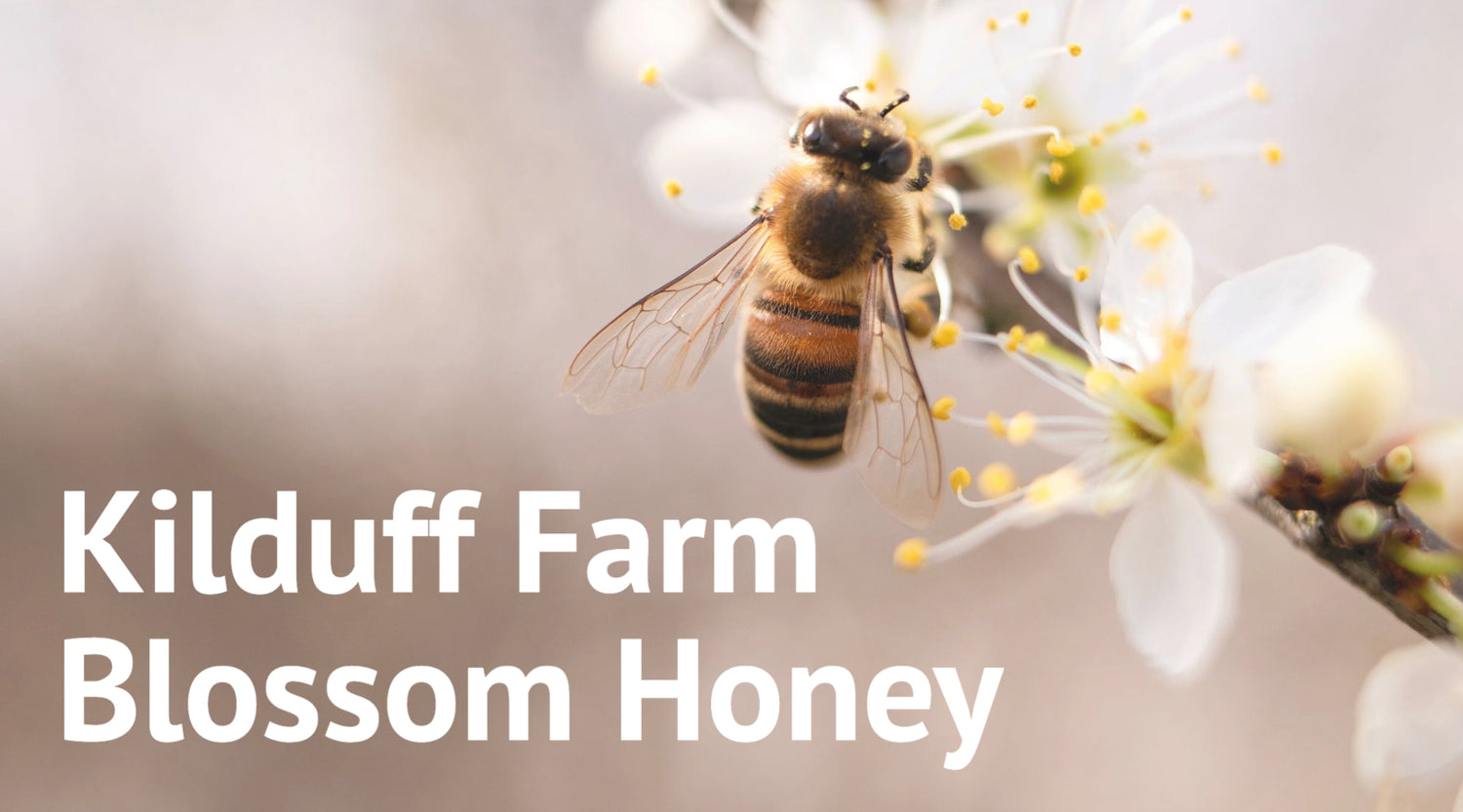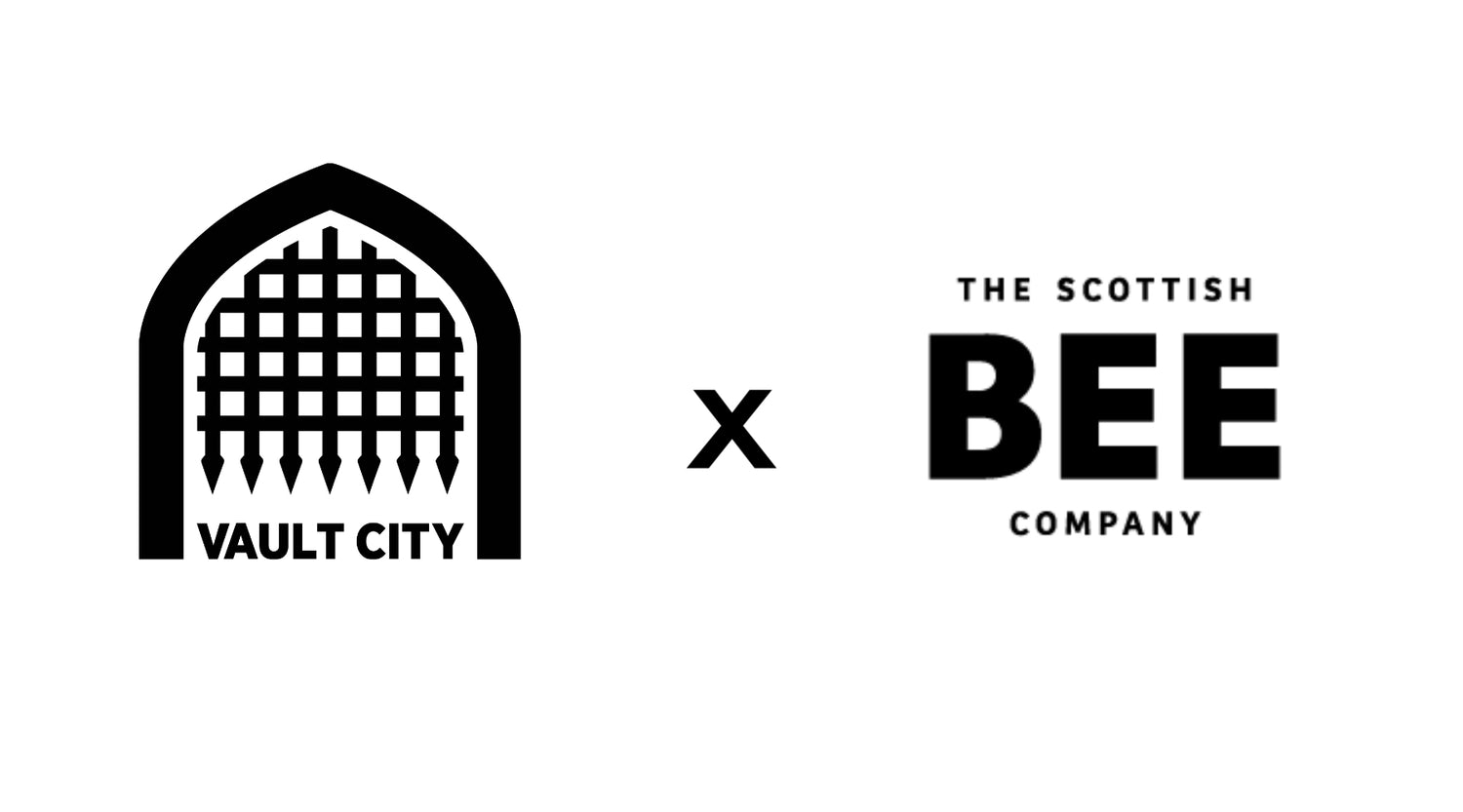Katie, our resident beekeeper, was the UK's first beekeeping apprentice.
After two years she's now graduated to become our resident bee keeper. We caught up with her to find out from her side how The Scottish Bee Company has helped with her journey.
So, how did your apprenticeship with the Scottish Bee Company come about?
"It feels like a really fitting prequel to my life as a beekeeper. Having a knowledge of botany is a crucial part of beekeeping due to that symbiotic relationship between flowers and bees. In a way the transition in to beekeeping was quite natural. Both jobs are also very physical too, and I love that!
I had a friend who told me about The Scottish Bee Company. I had worked with him on his farm so he knew I liked the outdoors and getting my hands dirty! He knew of the apprenticeship and thought I could be a good fit. I got in touch with Suzie and Iain and we organised a meeting. I remember really enjoying that first meeting. We just chatted about the bees and the apprenticeship. We also talked loads about SBC and how they had started up.
This was back in 2017 and so the company was still really young. It felt exciting to potentially have the opportunity to be a part of an organisation that was so committed to the environment.
Doing a beekeeping apprenticeship was also such an unexpected and out-there opportunity. When they offered it to me it felt like one of those once in a lifetime chances and I would have been silly to say no, even though it meant uprooting my life down south. If you're interested to find out more about that transition, I wrote another blog on my life as an apprentice beekeeper".
Tell us the highlights of your beekeeping apprenticeship?
"I have learnt so much in the three years since starting out. My learning has predominantly been about the bees! I’ve been lucky enough to work with some really experienced bee farmers and they’ve taught me loads about the management of colonies. The honeybees themselves are absolutely fascinating from how they behave as individuals to how they work as a superorganism.”
My practical work has been backed up by classroom study and I think that has been really informative. I've learnt mind-blowing stuff like bees actually produce wax and secrete it through glands in their abdomen. They also dance to communicate! You are probably wondering what on earth I'm talking about... Read our blog about the secret language of bees to have your mind blown too. It is truly incredible. Learning about why the bees behave in the ways that they do is so important to the whole process of working with them.”
Any important lessons?
"I think the most important lesson I’ve learnt is that as beekeepers we should respond to the bees rather than respond to what we want from the bees. I think of this as a kind of bee-centred approach. Keeping healthy, thriving colonies should be the basis of everything that comes after. If we can understand why the bees do what they do and when, then we can better work with them.
I’ve also absolutely loved how much more engaged and aware I’ve become of other pollinators. Just working with one pollinator brings you into that world and it’s impossible to view the honeybee in isolation. I’ve really developed a passion for all pollinators, and I like to think about how, as a beekeeper, I can support all those other pollinators that don’t get as much attention.
What is difference between apprentice and professional?
"The biggest difference is that as a professional I’ll be running my own hives for the Scottish Bee Company. As an apprentice I was running hives with my trainer but I’m now out there on my own. It’s exciting! I’m making the decisions about how to manage the bee colonies. There’s more pressure but I feel I’ve got the knowledge and experience to do a good job."
What are your hopes in terms of taking SBC forward?
"I hope I can grow alongside Scottish Bee Company. I’m the company’s first in-house bee farmer but hopefully I won’t be the last. It sort of feels like this is a new chapter for us and I hope we can develop the beekeeping side of the company in a way that stays true to the values of SBC. I want us to keep healthy honeybee colonies, continue to develop ways to help other pollinators thrive and keep providing high quality honey with a focus on provenance. I know that in other areas of the business there is a real focus on how to be as environmental as possible, through packaging for example, and I want this to extend to the bees. One of the ways this can be done is through supporting scientific studies around honeybees.
As an example I read some really interesting stuff about fungi recently. A mycologist called Paul Stamets had observed honeybees foraging on mushroom mycelium. His observations led to him studying the potential effects of fungi on virus levels caused by Varroa. He performed laboratory experiments that showed that the antiviral activity of certain fungi can be used against Varroa. The Varroa mite is a big problem for honeybees and infestations can lead to all kinds of honeybee viruses.
This scientific work is still in its early stages, but I think it would be amazing to discover that Varroa could be treated in a natural way rather than having to use chemicals. The ecosystem at its finest!"
Follow more of Katie's journey by subscribing to our newsletter.






1 comment
Now Katie has graduated would you consider taking on another apprentice. My daughter did a National Progression Award in beekeeping at school and is now looking for apprentice position. We live in Midlothian.